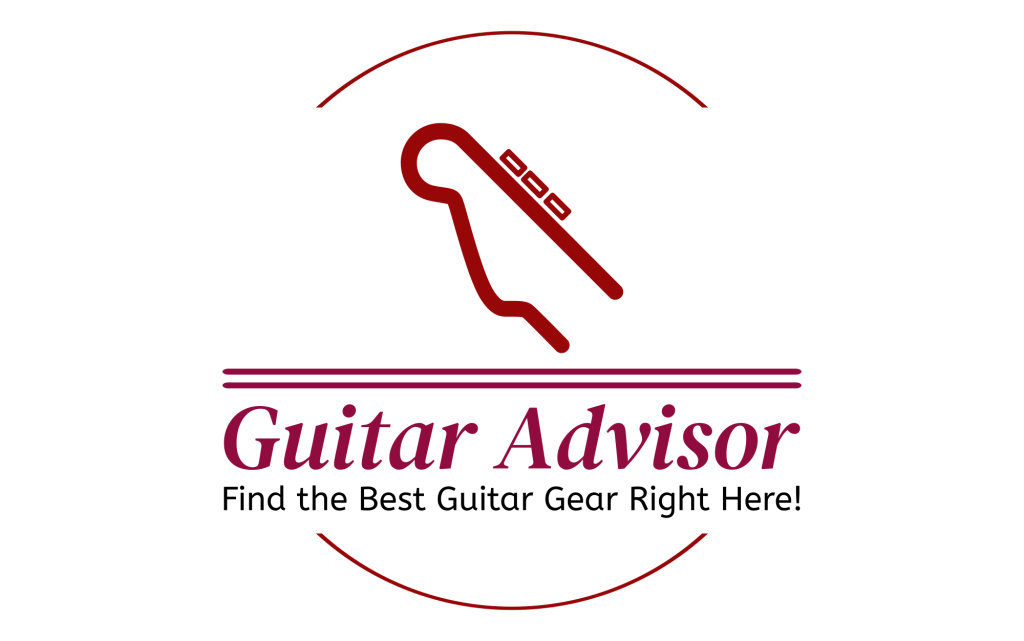How long does it take for an adult to learn guitar? This question may have crossed your mind if you’ve ever entertained the thought of picking up this versatile instrument. Numerous factors contribute to the timeframe it takes to gain proficiency, and these factors may vary significantly from one individual to another. You might be curious whether it’s a matter of weeks, months, or even years.
The Variables Influencing Learning
When pondering how long it will take an adult to learn guitar, it’s essential to recognize the myriad variables that influence this process. These include prior musical experience, the amount of time dedicated to practice, quality of instruction, and personal goals.
Prior Musical Experience
One of the most significant factors affecting how quickly you can learn guitar is whether you have prior musical experience. If you’ve played another instrument or have a background in music theory, you’ll likely find certain concepts easier to grasp.
Comparison Table: Learning Speed Based on Prior Experience
| Prior Experience | Learning Speed |
|---|---|
| No Prior Experience | Slower Progress |
| Basic Musical Knowledge | Moderate Progress |
| Proficient in Another Instrument | Faster Progress |
Amount of Time Dedicated to Practice
The amount of time you can devote to learning the guitar is another crucial factor. The more you practice, the faster you’ll improve. However, the quality of practice is more important than sheer quantity. Consistent, focused practice sessions are more beneficial than sporadic, lengthy ones.
Quality of Instruction
Another variable is the quality of instruction. Whether you choose to learn from books, videos, or a qualified teacher, having structured and accurate guidance can significantly hasten your learning process. A good instructor can help you correct mistakes early on, ensuring you develop good habits.
Personal Goals
Your personal goals also play a significant role. Are you aiming to play casually for personal enjoyment, or do you have professional aspirations? If your goal is to perform on stage, your learning timeline will obviously be longer than if you merely wish to strum a few chords at family gatherings.
Different Stages of Learning Guitar
Understanding the stages of learning guitar can help you gauge your progress and establish realistic expectations. These stages include beginner, intermediate, and advanced, each with its own set of milestones and challenges.
Beginner Stage
In the beginner stage, you will likely spend time getting familiar with the guitar itself. This includes learning how to hold the instrument, understanding the parts of the guitar, and becoming acquainted with basic chords and strumming patterns.
Key Milestones: Beginner Stage
- Learning to tune the guitar
- Memorizing basic chords (e.g., C, G, D, E, and A)
- Developing finger strength and dexterity
- Mastering simple songs
Intermediate Stage
Once you have a good grasp of the basics, you move into the intermediate stage. Here, you’ll focus on more complex chord progressions, fingerpicking techniques, and playing scales.
Key Milestones: Intermediate Stage
- Mastering barre chords
- Learning scales and modes
- Developing picking techniques
- Playing intermediate-level songs
Advanced Stage
The advanced stage is where you start to polish your skills and explore the guitar in greater depth. Techniques such as soloing, improvisation, and advanced fingerstyle come into play.
Key Milestones: Advanced Stage
- Mastering advanced chords and scales
- Developing a sense of timing and rhythm
- Engaging in improvisation and soloing
- Playing advanced-level songs

Setting Realistic Expectations
When learning guitar, setting realistic expectations is crucial for maintaining motivation and achieving your goals. A structured approach, combined with patience, will yield the best results.
Short-Term Goals
Setting short-term goals, such as learning a new chord each week, can provide a sense of accomplishment and keep you motivated. These goals should be specific, measurable, and attainable within a relatively short timeframe.
Long-Term Goals
Long-term goals should align with your overall aspirations as a guitarist. Whether it’s performing live, composing your own music, or mastering a particular style, having a clear long-term goal in sight will provide direction and purpose to your practice sessions.
Learning Methods: Self-Taught vs. Professional Instruction
Choosing the right method for learning guitar is essential. There are primarily two routes: self-taught and professional instruction, each with its own advantages and disadvantages.
Self-Taught
Learning guitar on your own allows for flexibility and can be more cost-effective. With numerous online resources like tutorials and free lessons, you can pick and choose what to learn at your own pace.
Advantages of Self-Taught Learning
- Flexibility in scheduling
- Variety of resources
- Cost-effective
Disadvantages of Self-Taught Learning
- Lack of structured guidance
- Potential for developing bad habits
- Difficulty in troubleshooting issues
Professional Instruction
Receiving professional instruction can provide you with structured, personalized guidance, making it easier to progress and correct mistakes early on. A good teacher can tailor lessons according to your learning style and goals.
Advantages of Professional Instruction
- Personalized guidance
- Structured learning path
- Immediate feedback
Disadvantages of Professional Instruction
- Higher cost
- Dependent on the teacher’s availability
- Less flexibility in scheduling

The Role of Technology in Learning Guitar
Modern technology offers several tools and resources that can accelerate the learning process. From apps to online courses, the digital age has made learning guitar more accessible than ever.
Educational Apps
There are numerous guitar learning apps available, such as Yousician and Fender Play, that offer interactive lessons, track your progress, and provide immediate feedback. These apps can be particularly beneficial for beginners looking for a structured approach to learning.
Online Courses
Various platforms, such as Coursera and Udemy, offer comprehensive guitar courses taught by professional musicians. These courses often include video lessons, practice exercises, and supplementary materials to enhance your learning experience.
Virtual Reality
Emerging technology, like virtual reality (VR), is also entering the realm of guitar education. VR can provide an immersive learning experience, allowing you to practice in diverse virtual environments and receive real-time feedback.
The Importance of Practice Techniques
Effective practice techniques are essential for efficient learning. Simply strumming aimlessly will not yield the same results as a structured practice routine.
Focused Practice
Focused practice involves setting specific objectives for each session. Whether it’s mastering a new chord or improving your timing, having a clear goal will make your practice sessions more productive.
Consistent Practice
Consistency is key when learning guitar. Regular, shorter practice sessions are generally more effective than infrequent, longer ones. Aim for at least 20-30 minutes of practice each day to see steady progress.
Metronome Usage
Using a metronome can help you develop a sense of timing and rhythm. This is particularly important when playing with other musicians, as it ensures you stay in sync.
Recording Yourself
Recording your practice sessions allows you to objectively evaluate your progress. Listening back to your recordings can help you identify areas that need improvement and track your growth over time.
Overcoming Common Challenges
Learning guitar comes with its own set of challenges. Understanding these challenges and having strategies to overcome them can make the learning process smoother.
Physical Challenges
Developing calluses on your fingers and building finger strength can be painful initially. However, with consistent practice, these challenges will diminish over time. Using lighter gauge strings and proper finger positioning can also alleviate discomfort.
Mental Challenges
Frustration and lack of motivation are common when progress seems slow. Setting realistic goals and celebrating small achievements can help you stay motivated. Joining a community of fellow learners can also provide support and encouragement.
The Psychological Aspect of Learning Guitar
The psychological aspect of learning an instrument should not be underestimated. How you perceive your progress can significantly impact your motivation and overall success.
Growth Mindset
Adopting a growth mindset, where you view challenges as opportunities for improvement, can make a substantial difference in your learning journey. Embrace mistakes as learning experiences and stay patient with your progress.
Performance Anxiety
If your goal includes performing in front of an audience, dealing with performance anxiety is crucial. Practicing in front of friends or family and gradually increasing the audience size can help build confidence.
Stress Relief
Playing guitar can be a great stress reliever. Engaging in regular practice can provide a sense of accomplishment and relaxation, contributing positively to your overall well-being.
Real-Life Examples
To provide a more tangible understanding, let’s look at some real-life examples of adults who have learned guitar, varying in background and goals.
Example 1: The Casual Learner
John, a 35-year-old marketing professional, decided to learn guitar to play his favorite songs during leisure time. With no prior musical experience, John practiced for 30 minutes daily using online tutorials. After six months, he could comfortably play several simple songs and basic chords.
Example 2: The Aspiring Performer
Lisa, a 28-year-old with a background in piano, aimed to perform live eventually. She took weekly lessons from a professional instructor and practiced for an hour daily. Within a year, Lisa could perform intermediate-level songs and was preparing for her first open mic night.
Example 3: The Serious Hobbyist
Michael, a 45-year-old engineer, wanted to delve deeply into guitar playing, focusing on blues and jazz. With prior experience in music theory, he opted for a mix of online courses and professional lessons. After two years of dedicated practice, Michael was proficient in various styles and regularly performed at local gigs.
Conclusion
So, how long does it take for an adult to learn guitar? The answer is complex and contingent upon various individual factors including prior musical experience, time dedicated to practice, quality of instruction, and personal goals. While some may achieve a basic level of proficiency within a few months, others aiming for advanced skills may invest several years. By understanding the stages of learning, setting realistic goals, choosing the right learning method, leveraging technology, employing effective practice techniques, and overcoming common challenges, you can significantly influence your learning timeline. Remember, learning guitar is a journey, not a race, and consistent, focused effort will yield the best results over time.
Hello, I’m an author for My Guitar Advisor. I love writing about and playing guitar, mainly fingerstyle but dabble into all genres. I hope you enjoy my writing and reviews.
